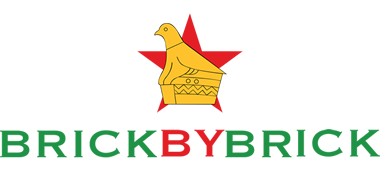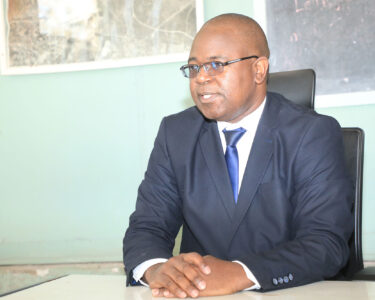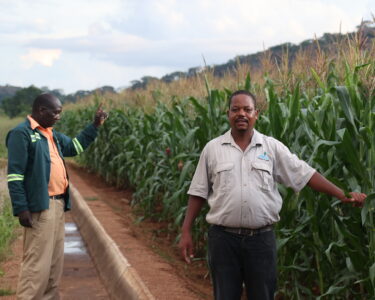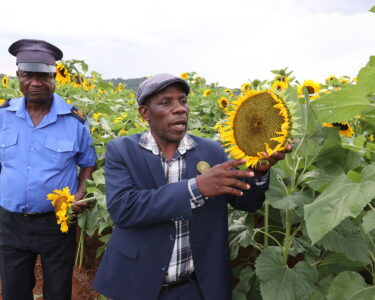… It’s why Disporan Zimbabweans are farming at home while living abroad
All on the quiet, a large number of Diasporan Zimbabweans, imbued by the spirit of patriotism, have bought into President Emmerson Mnangagwa’s mantra that Zimbabwe will be built by its own people, and no one else. “Nyika Inovakwa neVene Vayo” (a country is built by its own people). As such, the diasporans, mainly those in the UK, have been doing remote farming in Zimbabwe and have been successful at it. Brick by Brick met two of them in Harare recently, a man and his wife Walter and Joyce Chiyaka, who had come on holiday to see the agricultural projects they are doing at Gokwe.
Our interview with them on 24 February 2023 was simply out of this world. “The spirit of wanting to see a success of our projects here in Zimbabwe, and a success of Zimbabwe as a nation, is really overwhelming. I think it is a story that is not widely told,” they said. “Of all the things that the President has said, the biggest of all is the mantra, “Nyika Inovakwa neVene Vayo” (a country is built by its own people). It is prophetic. No one is coming for us. It’s either we swim or we sink. They are not going to throw the paddle at us and say ‘we will pull you over’. If anything, they are using the paddle to hit us to sink. So it’s us in the big ocean that the world is, to actually try to get some energy to get to shore as Zimbabweans. No one is going to do it for us. Forget the IMF. Forget the Bretton Woods institutions in their entirety. They are not for us. We are we. It takes us to get us from where we are to where we want to be.”
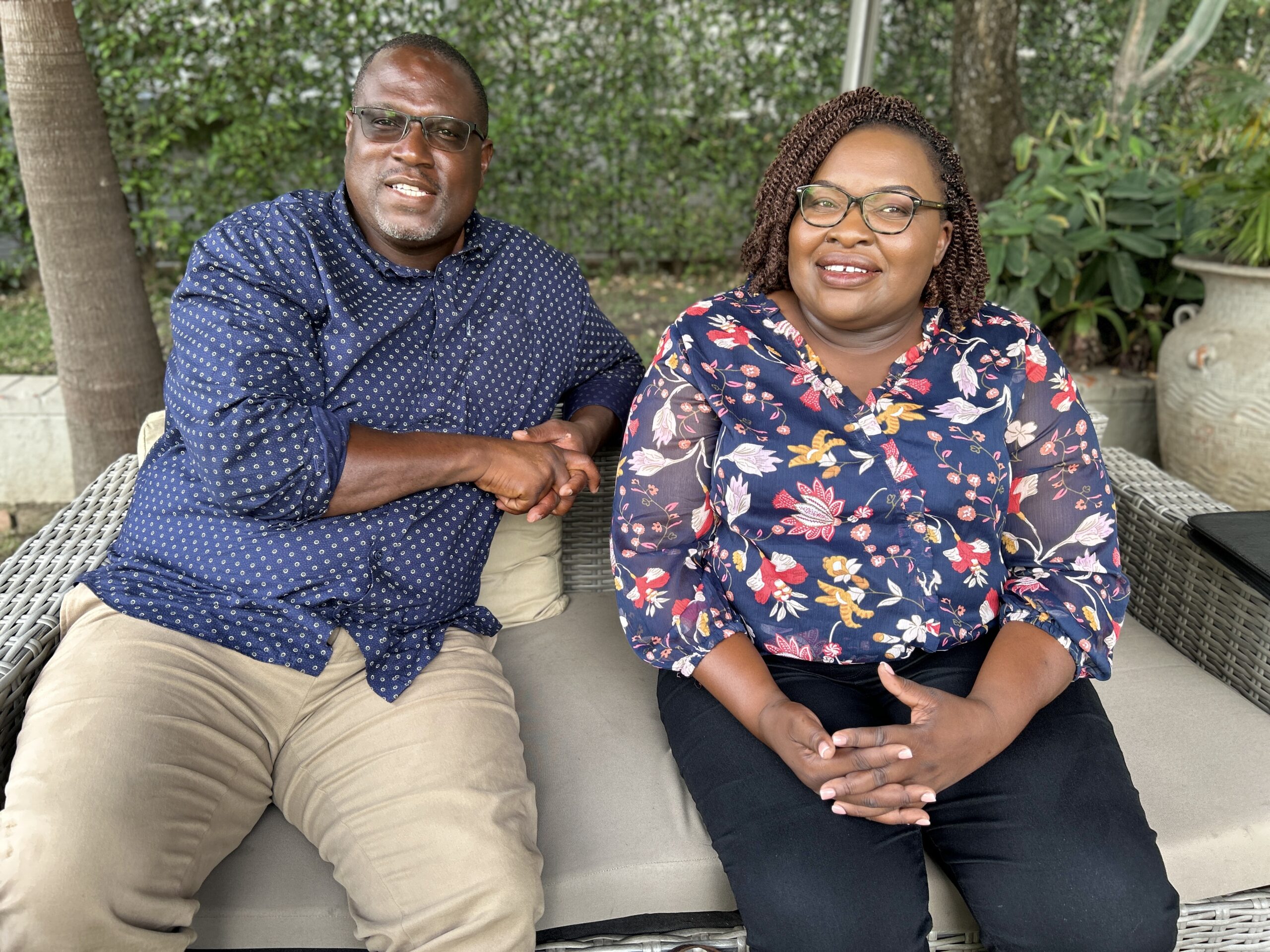
And Joyce and Walter Chiyaka were not finished: “From my time in Zimbabwe,” Walter said, “since we came on 24 December 2022, I have seen many positive projects that the government is doing, and it’s quite a breath of fresh air to see the changes that we’ve seen on the roads, the dams that have been built, even the clinics that have been put up, and the other efforts that the government is doing. We just wish more of that could be done and the story told a bit more, and the government dialogue more with the people in the diaspora, to say this is what we are doing at home. I think much of what the government is doing is not known out there, and the story is not widely spoken about, or is not widely told as it should be. It is a shame that people believe so much of the hype that they see on the social media. It is not the reality on the ground.”
Joyce and Walter Chiyaka were interviewed together by our editor-in-chief Munyaradzi Huni, and managing editor Baffour Ankomah. Please sit back and see patriotism at its best.
Q: For people here in this country, if you live in the UK, you are supposed to be fine. So what inspired you to farm in Zimbabwe while living in the UK?
Walter: We were born in Zimbabwe to parents that were generally farmers by default and not by choice. But also during the holidays, when growing up, we would always be sent to our rural homes to help out with farming activities. With that grew the desire to also continue the legacy that our parents left us.
The land that our parents had, we couldn’t just leave it to go to waste. So really it was out of the desire to keep their memory alive, and also we realised that we could make a living out of doing what they were doing, not on a small scale but we realised that we could actually commercialise that free land that we got from our parents. It is our legacy and a legacy for our children as well.
It was also a need to give our children identity because it is easy to lose your identity in a foreign land. For kids to grow up in a foreign land, and to think that they belong to that land is not right, it is not their roots. Our roots are farming, and farming in Zimbabwe. Hence we had to make that bold step to say, this is what we want to do. Whatever little we’ve got to spare, we will put it into farming.
Q: How many children do you have?
Walter: We’ve got 2. We are blessed with a son and a daughter. Our daughter is 26 now, and our son is turning 18 this year. We are thankful to God for blessing us with those kids.
Q: Do they also come to the land?
Walter: Yeah, our daughter was here with us. We’ve been here since Christmas eve 2022. She only went back 3 days ago to the UK to continue her studies. She is quite interested with everything to do with Zimbabwe. She is very passionate about farming. She said we should look for land for her. It is very unusual in our traditional African culture to find girls really passionate about anything to do with farming.
Joyce: We took her to the UK when she was 6 years old, she is now 26, and this is her second time of coming to Zimbabwe.
Q: Only the second time in 20 years, and she loves it?
Joyce: Oh my goodness, she loves it!
Walter: She was not ready to come even this time with us, but she kept on saying, “I really need to go home”. We have people back home who are looking after our project. They send us pictures of our crops in the field, our cattle, our goats, whenever they give birth and so on. They send us the photos and we always beam them on the big screen at home. Our son would look at it and say, “you people, you are about cattle and all that”, but we tell him you don’t realise the value that is entrenched in the cattle. You need to know that there is value in it.
For instance, although my father was a soldier in Zimbabwe, much of my school fees to go to Kutama came from his farming activities. He used to farm cotton, maize, goats and sheep. So for me I know the intrinsic value of farming in my life. It has actually made a difference in my life. So to continue something like that, it is basically part of my blood. So I will not change that for anything.
I am a structural engineer by profession, and I am happy to be working in the field just as I am happy to be working on a construction site. It’s all working with mud anyway, but different kinds of mud. I want to put it that way. One gives life, the other gives shelter to a living person. So I am basically working in both fields in a way that I enjoy it.
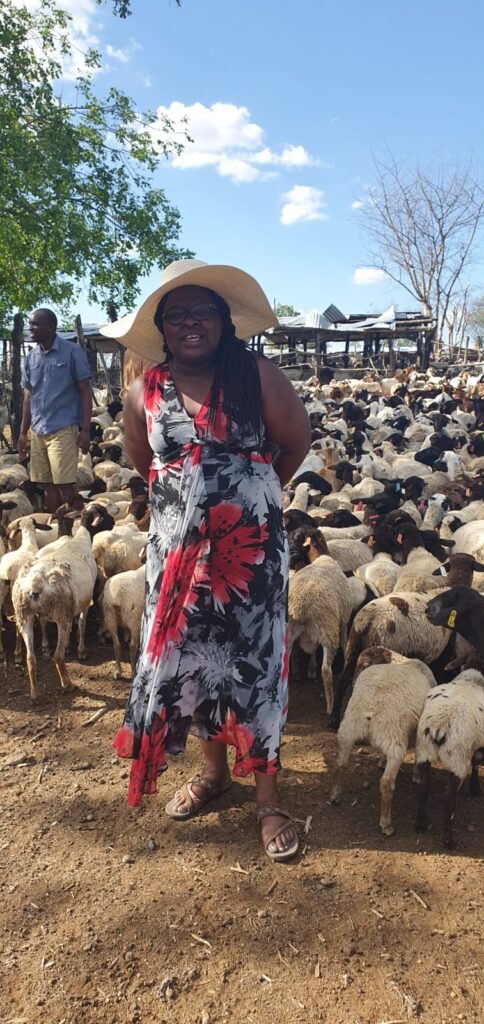
Q: Sister Joyce, are you also passionate about farming or have you been dragooned into it by your husband?
Joyce: No, no, no. I am more than passionate [laughs]. I have a strong rural background, and when we went to the UK we didn’t actually have an understanding, the land reform had just started in Zimbabwe, we thought “oh, what’s happening, and this and that”, but then if you go to that part of the world you get an understanding of who you are and the importance and value of land, because of the treatment you receive abroad. That’s when I developed a stronger passion for Zimbabwe and what was, and still, happening.
It is unfortunate that when people are in Zimbabwe, they don’t realise who they are, they don’t have an appreciation of who they are, maybe that is why we are so grumpy, you know. But I think as Zimbabweans we are going on the right direction, and land, honestly speaking, of all things, land is the way to go. And land is life.
If I am to leave an inheritance, I feel that if I leave land to my children it will be passed on from generation to generation, unlike say if I leave them cars or even houses. They can sell them. But with a piece of land, even if someone is very dull but not lazy, they will earn a living using the land.
Q: Where is your farm, and what kind of farming are you in?
Walter: We don’t have a farm per se. We are farming in Gokwe. We are originally from Gutu, but my father moved on with some of his uncles to go and live in Gokwe. So it’s just communal land that we are utilising. My father passed on and left this communal land.
Q: How big is this communal land?
Walter: We’ve got about 10 hectares, but we also lease land from other people, because there are some people who just got land and not using it. So we just go to them or some indeed come to us and say, “we’ve got this land, we don’t want it to grow into bush, or we don’t want bushes encroaching on this land, do you want to use it?” For a nominal fee, we take over that land, maybe for 2 or 3 years, we plant our crops and so on.
We are more into sunflower, maize, groundnuts, and cowpeas. I know Gokwe is a cotton area, but cotton is difficult to do from a distance, unlike other crops. But we have realised that because of the type of crops that we are growing, and our bias towards cattle and goats, we can easily make our own stock feed although we do buy some concentrates from South Africa. We try to get concentrates here in Zimbabwe but the prices are a bit on the high side.
Q: Even the one from Chihoyi University of Technology (CUT)?
Walter: We have tried CUT licking blocks, we are yet to see the results. We are trying to compare them. We’ve put cattle in different camps. We’ve got some with other people and some at home. We can easily monitor the ones at home so they are the ones on the CUT blocks. We just want to see how they do. So it’s more a controlled exercise.
Q: How many cattle and goats do you have?
Walter: So far we have 132 cattle. We have 4 families who, unfortunately, did not have cattle of their own, so we gave each of those a number of cattle to look after so that they can also get draught power and have access to milk. When the cows give birth, they take them to our homestead, we keep the cow and calf for about 3 weeks while the calf gets the initial milk and so on, so we know our team at home can actually monitor them.
And after a period of time we sent them back to the person who is looking after them. And on every Thursdays and Sundays, the cattle come back home, that’s when we do our dipping and inspection, just to see the state the cattle are in, and if there is any disease. If there is something wrong, they are treated at our homestead, If they are well and good, they go back. At home, we keep a herd of 40 and the others are with different people.
In terms of goats, we’ve got a herd of 164. Again, we have now started bringing in some Boer goats from South Africa and Namibia. We try to cross them with our local breed so that we get a bigger carcass when we go to the market. We try to embrace this in a communal area where, as you know, it is very difficult to work in that environment, but we are trying the best we can. We’ve got some Boer bulls that we got from South Africa, some ewes that we got from Namibia, we’ve also got Kalahari goats which we are also introducing to our local breeds. So we can improve on the genetics.
One of our main desires or drivers is actually that people can learn from us good animal husbandry and also the need to improve on the quality of cattle and goats that they have. So we try to work hand in glove with the Agritex and veterinary officers. They have been very good to us. If there is any problem, if we need vaccination and so on, the Agritex officers and those from agricultural extension come and help us. So our small effort is going a long way in uplifting our local community.
Q: Which part of the UK are you?
Walter: We live in Leeds, West Yorkshire.
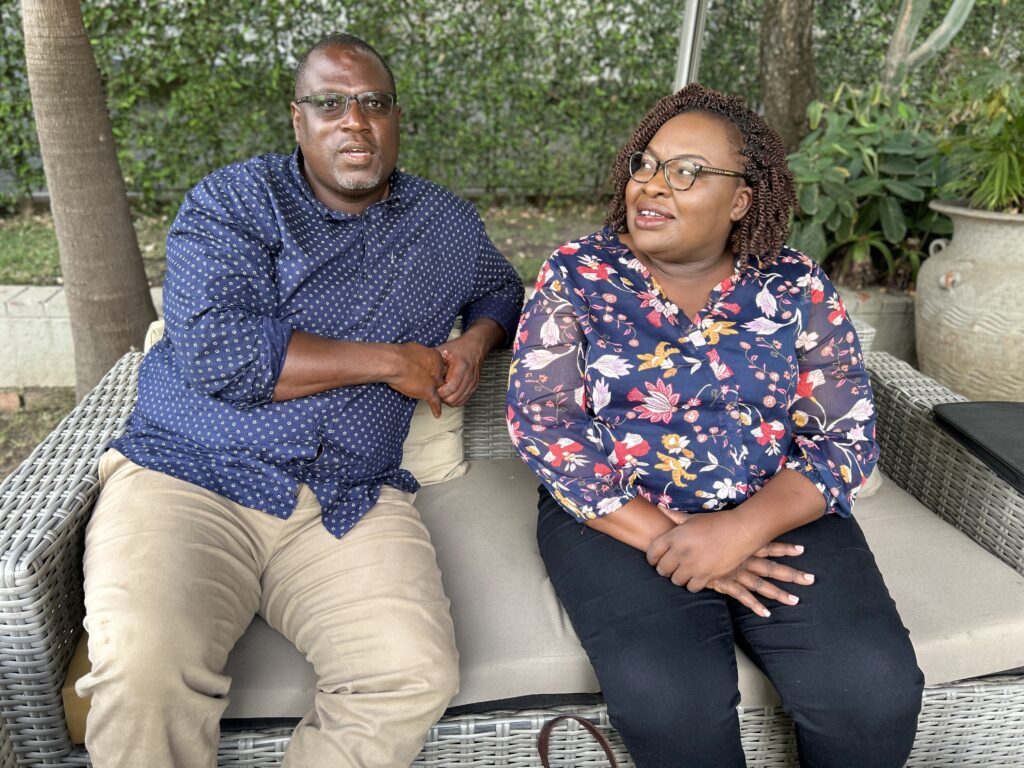
Q: So how do you manage things back at Gokwe, because you say on Thursdays and Sundays, your animals are brought back to your homestead for inspection and treatment, etc?
Walter: We have invested in wifi at home, thank God for the cell phone. For all the ills of the social media, I think one of its benefits, for us, is our ability to communicate with our people on the ground. We do video calling, unfortunately the data here is very expensive, but we think it is money well spent in trying to manage and monitor our projects.
We’ve got wifi at home in Gokwe, so our guys are just a phone call away, and we are also a phone call away from them. Should things go wrong, they use the internet.
Q: You left Zimbabwe in which year?
Walter: We left in 2002.
Q: By the time you left, were you into farming?
Walter: At that time, we were just pottering around, saying “Oh you go to kumusha and you come back”, it wasn’t something that we were really into in a commercial way. It’s only after 2008 and 2010 thereabouts that we thought, “you know what Mom and Dad are no longer there, this thing is upon us, and we can really commercialise what they left behind and try to spruce up the homestead.
I can tell you since we have been here, from 24 December last year up to now, I have only been in Harare for … this is the longest that I have been in Harare. All my days have been spent in Gokwe because that is where we have invested. We’ve got property elsewhere in Harare and scattered across the land, but our passion is in Gokwe because we realise we’ve got greater value and greater application there than we have here in Harare.
Q: How difficult is it to manage such a project when you are far away?
Walter: It is very difficult because of the rural setting and because we’ve got our external family close by, and they always want to put their hand into it, and sometimes it causes problems. Because they are our relatives, they think they have got ownership of it, they feel they are entitled, and we’ve got to be very diplomatic in how we talk to our sekurus and whoever want to put their hand in what we are doing.
Moreso with cattle because you know with draught power, there has been a massive increase of January disease in terms of cattle, and a lot of people have lost a lot of cattle, so Joyce and I decided to put up a spray rest where we actually dip our cattle at home and not rely on the outside facilities, because we know the challenge the government is facing in providing agro chemicals and so on. So we said we can do it on our own and let the community come and access our facility.
Q: We hear you breed dogs also, commercially?
Joyce: We breed a lot of dogs, Boer velts(?) and a cross of German shepherds. They are good for us, security-wise, because we are not there. Where we are located, we are not far from the main road. So because of where we are, we need some security. But during the process, we started having a lot of puppies and we realise that it was another source of income. We actually bought a second-hand fishing boat from the sale of some of our puppies.
Q: How do you sell them?
Joyce: We use the social media. Some people use Whatsapp for whatever, but we use it positively to sell our products, even our goats. Usually when we come to Harare, we use a very big lorry because we come with some of our guys, and some of our goats and puppies.
So, say, if our guys have come today, they would just be delivering. We would have already done the marketing. The following day, they would be rest assured to go home with US$1,500 or US$2,000, because the price of goats in Harare is about US$50 or US$60, and then with our puppies, if we sell around Kwekwe and the other areas, they will be about US$300 each, but when it is here in Harare, they can go for US$350 or US$400 each.
Q: So the dogs are more expensive than the cattle?
Joyce: Oh yeah. And they would be only 6 weeks old. We vaccinate them, we get all the certificates, then we sell them. And people like the breed. It’s quite interesting because some other people locally are imitating us.
There are some young men, we just hope that they are not stealing those goats, because some Chinese and Asians used to come to Gokwe to buy goats because they are cheaper there. The young men would sell the goats for about US$15 each and just spend the money. But now they know that our goats are valuable. So when they come to Harare, they sell them for about US$40 to US$50, and they are making money from the same goats that they used to sell at US$15. So we have made a difference in those young men’s lives. Our only prayer is that they are not stealing some of the goats they are bringing to Harare.
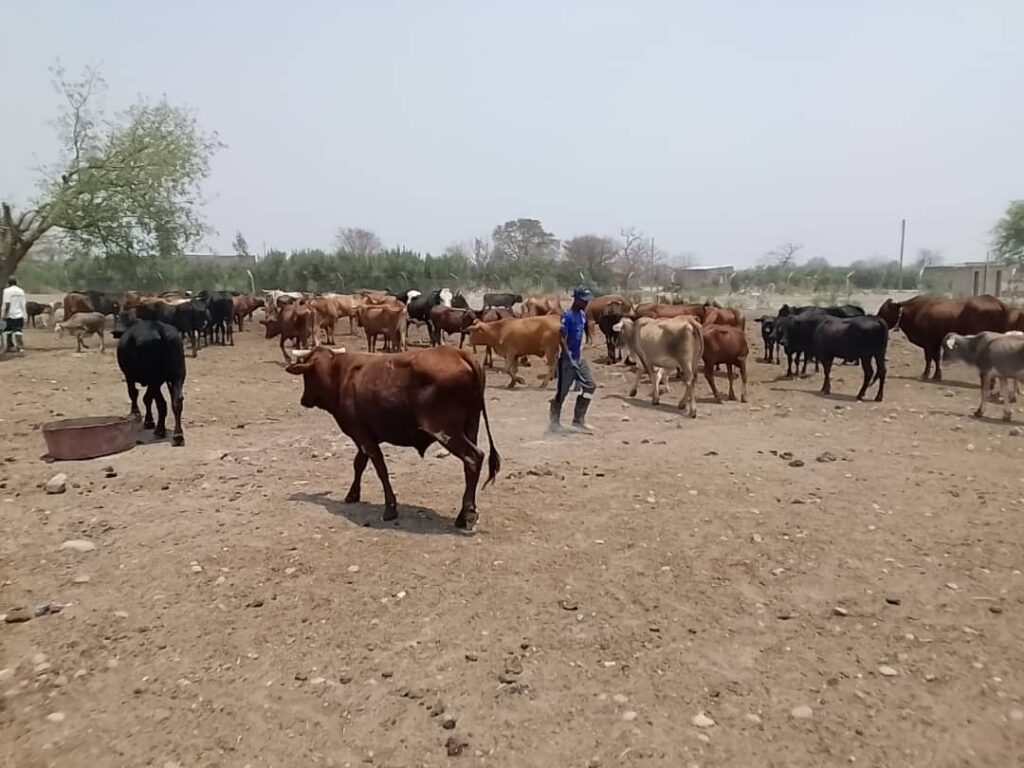
Q: Now that you have made the decision to commercialise your farming, why are you not coming back home?
Walter: We have to have our infrastructure set up to the point where we are comfortable with everything. We also have businesses in the UK that we are running. I am a structural engineer by profession, I am a sort of freelance engineer. I do get work from companies I work for. It is something that I cannot do here and sufficiently live off it. It is easier in the UK. But because I work for myself, I can be here in Zimbabwe for long stretches of time now. So for us, this year has been the longest we’ve been in Zimbabwe on one stretch.
Q: Some readers would think these people are farming in Zimbabwe because their lives in the UK are not well.
Joyce: We have businesses in the UK, we are into the health sector. We’ve got our own company, and we’ve got the licence which people are using to recruit people from abroad. So we are not complaining.
Q: You now know the value of land, isn’t it?
Walter: We know the value of land, we not only know it but also appreciate it. For me, I think the biggest thing is for people to see the value not necessarily in farmland as our understanding of what a farm is, but the land we’ve got in the communal areas should be utilised.
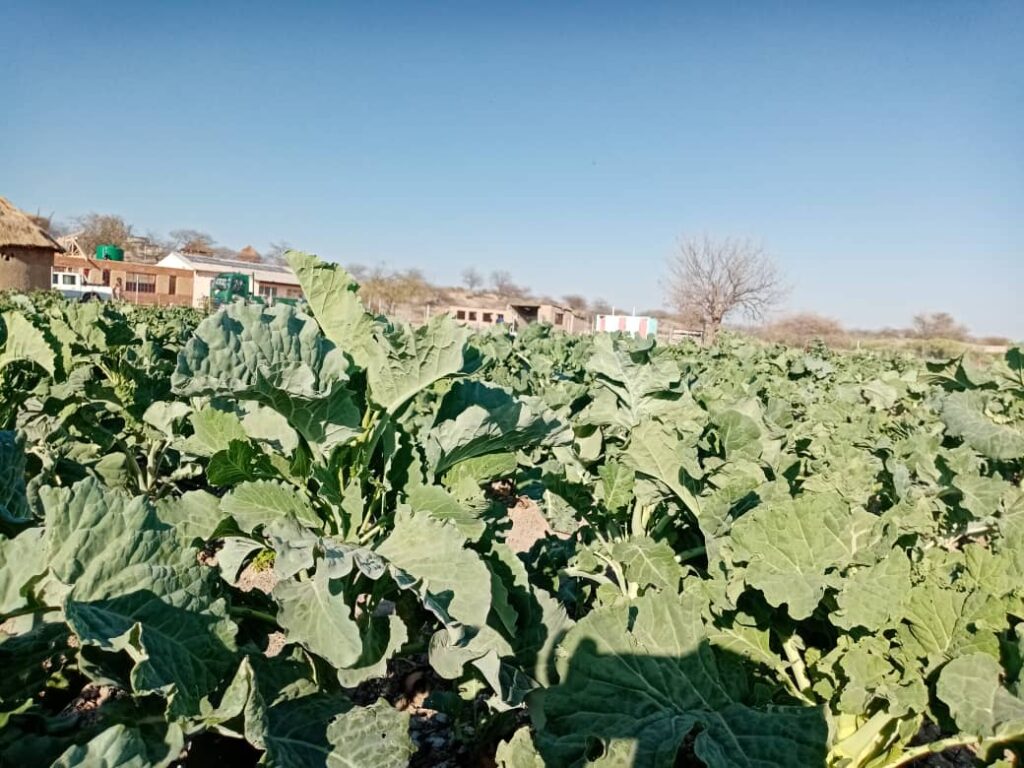
I think there is a lot of under-utilisation of land in the communal areas, never mind what is happening on the commercial farms that have been given to people. I think the greatest survival of our nation will come from the communal areas. It is harnessing the power of the communal areas that will bring salvation. Because if you look at, say, from 1980 or before, if you aggregate the amount of maize, tobacco, cotton, cattle, etc, that the people in the communal areas have had, it outstrips the commercial farmers’ total.
So I think it is a no brainer to be in a communal land, because it is something that has been given to us for free. We know that the headmen and chiefs are the custodians of that land, but it is for us to use. How best can we use it? How can we commercialise it? It is the thought process that people must have.
It is not a question of going to grab a big farm and not do anything with it. I would rather cut my teeth working at kumusha and make a success of it, before I can go and say I want a big land. Look at the number of people who have got farms today. How many of them have come from rural areas? But if you go to those areas that they originally came from and see what they are doing, probably not much. To leave the communal setting for the commercial setting might be too much for other people.
So I would rather learn the ropes in an environment that I am comfortable with, and then grow from there, because growth is important but it got to be managed.
So we think from where we started and where we are now, we’ve grown to a point where even today if we are offered land by the government, bigger land and so on, we know we can make better use of it because we’ve proved ourselves that we can do it. People can say, we saw these people starting at this point, they are at this point now. So I am comfortable if somebody told me today, “don’t go to the UK, stay at Gokwe”. I would stay.
Q: Are there many like you in the UK?
Walter: I know quite a number of people, we are on a Whatsapp group, we call ourselves “Zim Farmers in the UK”. So we have formed some form of synergies with different people. Some of us are now breeders of cattle, goats and so forth. So we buy from each other. We are a sort of community in the UK that has come together or that has been brought together by farming, to actually do this.
So, for instance, we’ve got people that I am connected with. We go to South Africa to buy stock feed, etc. But some of the people on our Whatsapp group, I have never met them. I just speak to them via Whatsapp and on the phone. The spirit of wanting to see a success of our projects here in Zimbabwe, and a success of Zimbabwe as a nation, is really overwhelming. I think it is a story that is not widely told.
People just think that when people are in the UK, they just think of putting on nice clothes or drive these cars on chikwereti. No, people are actually sending money home to get their projects going. Some are coming and going. They may come here for 2 or 3 weeks and go back. These are those who have got full time employment.
I am in a good position as I am self-employed. I run my own things so I don’t need someone’s permission to come back home. I can come as and when I please. So unlike other people who have to ask their bosses’ permission to come, even in those situations, people in the UK are doing wonderful stuff here. I know one people in the UK who have a herd of 1,000 cattle here …
Q: Which place are they farming?
Walter: Some were allocated farms by the government. Some are actually renting farms. There is a Shona saying that roughly translates as, “when you are not there, the only thing that grows by itself is a cow”. So you don’t need to be physically here to have so many cattle. You can do it if you have trusted people on the ground and you can monitor your project from there.
It is the same as the formerly white-owned land in Zimababwe. Much of that land was owned by people who were absentee farmers. So we are basically doing the same thing. It is the colour of the skin that is different, but the process is still the same. Probably we are doing it much better. And our money stays here unlike the money that was being taken out. We are ploughing back into our communities.
I want to see my neigbour in kumusha grow as well. I want to see my neighbour’s kids go to school. My wife has a group of women that she leads. She has a prayer group and she tries to empower women. They pray but they also empower each other.
Also, in our rural area, we’ve come together and formed a group to support kids in our locality. We pay school fees for about 35 kids. We are hoping to increase the number next year, maybe to sponsor the whole Grade 7 class. For the amounts that are involved, anyone who is in the diaspora who wants to do it, it is achievable. You don’t have to support 30 kids, or even 20. Five kids are enough. You would have made a difference.
Q: When some people go abroad, their preoccupation is to say all sorts of bad things about their own country. Why are you and your wife not doing that?
Joyce: We are Christians and we believe in the world of God. So for that reason we accept who we are. And we thank God for who we are, even our problems, because if Zimbabwe wasn’t in a position which it was in, or where it is now, we wouldn’t have been where we are. So at times crisis is very good. It activates your thinking.
We know that some people are still colonised mentally. Yes, we are no longer physically colonised, but I believe that colonisation starts from the mind. At home in the UK, the speaking of English stops at the gate. The moment you step into our place it is Shona because we want our kids to appreciate who they are.
The problem that some of us Zimbabweans have is that we are bombarded, especially in the UK which is considered “the motherland” for so many nations. We want to imitate the Asians, the Somalis, and even the English themselves, because we don’t know who we are.
So I want my children and myself to know that I am proud of who I am. I am proudly Zimbabwean. And for that reason, I have come to a point where I understand that I must speak positively about my nation, because if you go to the USA or even Britain, you will never hear them bash their nation. And when they are working, they work with a passion, even if one is a cleaner, they do it wholeheartedly with the love of their nation.
This is what is lacking in us as Zimbabweans. I don’t know where it is coming from. That’s why I said we are still colonised mentally. Yes, problems are there but what do we do as Zimbabweans? The President’s mantra is that Zimbabwe will be built by its own people, and who are the people? We are the people.
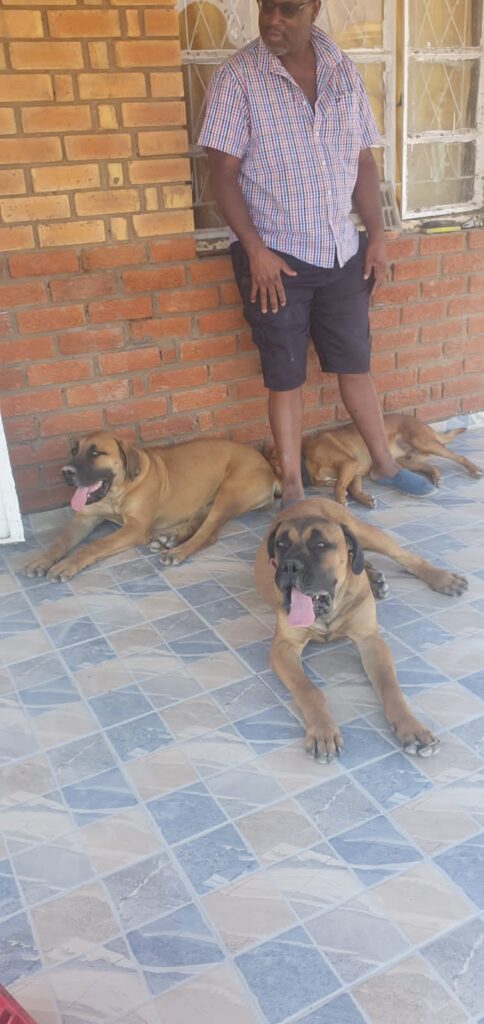
Q: Do you actually believe in the mantra?
Joyce: Ooh my goodness, it’s prophetic. I don’t think the President even understands what he is saying.
Walter: Of all the things that the President has said, for me, the biggest of all is that mantra, “Nyika Inovakwa neVene Vayo” (a country is built by its own people). No one is coming for us. It’s either we swim or we sink. They are not going to throw the paddle at us and say “we will pull you over”. If anything, they are using the paddle to hit us to sink.
So it’s us in the big ocean that the world is to actually try to get some energy to get to shore as Zimbabweans. No one is going to do it for us. Forget the IMF. Forget the Bretton Woods institutions in their entirety. They are not for us. We are we. It takes us to get us from where we are to where we want to be.
So I think in our own small way, we must, all of us, do something to get the nation to shore. You know everything starts in the village, in the family, and then grows until it gets to nation status. But if we can’t get our village working, how can we get the nation working. So for us, my wife and I, we will get our village working first.
Joyce: I had a wake-up call. You know I am a social worker professionally. I work with someone from Nigeria and he asked me how he could get to Zimbabwe. He is a professional, this man, he is a social worker too, but he wants to come to Zimbabwe.
And I said, why do you want to go to Zimbabwe? He said: “It is the only place to be right now in the world,”. I said why? He said: “There are too many opportunities there, but the Zimbabweans are blind, they don’t even see what they have.” Here is somebody who has never been in this country, but whatever research he did, he has an understanding of what is happening in our country.
Another one is an Asian guy, there was a time when people wanted to go to Australia. So we wanted to migrate from Britain to Australia because of the opportunities there and because of our profession. We compared the salaries and the packages, and wanted to go. And this Asian man said: “You are mad, where do you think you are going? If I have the opportunity, I would go to your country right now”.
So I started to think, oh my goodness, why is it that all these people are speaking this way. Even Matthew Ashimolowo, the UK-based Nigerian preacher, was actually encouraging people at one of his international champions gatherings, to go to Zimbabwe. He said if you are a Zimbabwean or if I were a Zimbabwean at this conference, I would pack my bags and go back.
So some people don’t understand the times and seasons. And I thank God for what happened when we went there [in the UK] because it opened our eyes.
Personally, I have the opportunity of leading women from all around the world on our prayer group platform. It started just around Covid time and now people connect every day in the morning to pray. We intercede for our nations, and many Zimbabweans connect to the platform. It is now so, so big.
So thank God for blessing me as a leader of such a powerful platform, and I understand that at times as Christians, we focus on praying and praying and praying, without action. But we have to pray and act. So I am encouraging people to invest back home. It is interesting that men are also coming to the platform as well, so I am encouraging families to invest back at home.
Yes, it is difficult for us to break through on the land reform system, but if you are a Zimbabwean, you have got roots. So you have to invest kumusha kwedu. So we started an operation called “Taura naSabuku”, (speak to the headman).
Q: Listening to you both, you are passionate about farming. So why don’t you just farm in the UK?
Walter: The land there is not only expensive, there are also a lot of safeguards around farming. It is almost something that is the preserve of white people. There is only one Zimbabwean farmer in the UK that I know, a guy called Mamuka. He is based in London, and he is farming down south.
He started off by just renting some pieces of land and grew white maize. We like our white maize, but the majority of the maize they grow in the UK is yellow corn, and nothing beats white maize. So he started off doing that. Now he has also got a herd of sheep, but he still does his maize and other things.
Q: Let’s go back to the Zimbabwean in the UK who has 1,000 cattle back in Zimbabwe, and the other one who has 200 cattle. Can you talk more about them?
Walter: Yeah, there is a young guy, I don’t know if I am at liberty to mention his name, but he is around 36 years of age, he is not yet married, I call him my young brother. He has got more than 200 cattle at such a young age. He lives in the UK and he is farming near Kwekwe.
I know someone again, a Zimbabwean who lives in the UK and farming near Chivhu. He has got more than 500 cattle. He comes here and goes.
Q: The one with 1,000 cattle, where is he farming?
Walter: He is farming in the Nyabira area. He too lives in the UK but he comes and goes. He is one of the guys who are doing great things.
The common trend to all of them, or even including my wife and I, is the desire to see our country succeed. We can easily forget about kumusha and everything and still live our lives well, but what is the joy in me succeeding when my own people are not succeeding? There is no joy there.
I know some people would want to be put on a pedestal, to say it’s them that have it. But there is no joy in that. We feel fulfilled knowing that someone has managed to pull someone up from one state of existence to another. For me, it is one of the biggest drivers. And also just knowing that we’ve not let what our parents started off to just go to waste – that we have managed to improve it to a certain point, gives me joy.
Q: Is this thinking exclusive to Zimbabweans in the UK or others elsewhere, say in the USA and other parts of Europe, think the same way?
Walter: I have met a lot of Zimbabweans in the UK, professionals and so on, who think like that. I will cite an example: Engineer Sidney Gata, the executive chair of ZESA Holdings, came to the UK and tried to speak to ex-ZESA employees and people that are into electrical engineering and other fields of engineering. So we went to listen to him.
He was trying to engage engineers in the diaspora. I hope other ministers could do the same, to engage engineers or technicians, whoever is out there, for them to bring their expertise back home, to grow our country. Because the diasporans have been exposed to newer and maybe better ways of doing things. We’ve been exposed to different technologies.
The same as in farming. We do farm visits in the UK. We go to see white-owned farms in the UK, how they are doing things, and how can we copy some of the things and apply them back home.
Q: My question was, do Zimbabweans in the USA, other parts of Europe, or in Australia have the same mindset like you and your wife?
Joyce: Like I said, I have a group of women whom we are trying to decolonise, so that they can understand and appreciate their own country. We started an operation called “Operation Taura naSabuku”, speak to the headman, look for pieces of land. So people are now trying to come back home and invest in their own rural areas.
We also started an initiative of drilling boreholes, so we have 3 boreholes being drilled each month across Zimbabwe. We contribute money, 500 British pounds per month towards each one of the boreholes. And 3 people among us in the group get a borehole to be drilled at their homesteads, which is making a huge impact.
So people are changing their mindsets, and some of them are even starting bigger projects, like doing chickens. I know of a woman who lives in the UK but who now has about 4,000 chickens in the Domboshava area. She got a contract somewhere, and that is a lot of money.
Q: What you are doing and the people you are talking about, what do you think the government needs to do to capture people like you or them? Or even interact with them?
Walter: I think I alluded earlier to Sidney Gata coming to the UK. These are visible people heading big organisations. If they come out and explain what they are doing back home, and what they require from people who have professions relevant to their ministries or parastatals, it will change mindsets.
I think the government needs to do more of that. I think what Sidney Kata did to meet engineers in the UK was very good. We’ve got Zimbabweans that are running the UK’s national grid. I know Zimbabweans who are running the electricity distribution centre in the UK. During the Covid period, 8 Zimbabwean electrical engineers were actually looking after the electrical grid in the UK.
Now, we are in the throes of one of the most difficult electrical situations in Zimbabwe. Imagine harnessing the capacity of the Zimbabwean electrical engineers abroad, even on a consultancy basis. Those people could do wonders for this nation. After all they were trained in Zimbabwe, and it’s our skills that have been drained and gone elsewhere.
The Western world is actually benefitting more from our sweat, people Zimbabwe trained. We’ve got doctors abroad. We’ve got nurses abroad. We’ve got teachers abroad. We’ve got engineers abroad, you name it. We’ve got the capacity to change this country.
It is not only because the people who have gone abroad are now exposed to new technologies and so on, I think the experience that they had before they went coupled with the experience they now have, can be brought together to do something.
But I don’t know whether the government has got something in place to bring those people back home, or at least invite them on temporary basis. “Doctors Without Borders” is a good example. People come from all over the world to go and help with a medical disaster somewhere and then go back to their nations. We can do the same thing. We can have our “Engineers Without Borders” come and do something in Zimbabwe and go back if they so wish, but still we will get a benefit of the investment that the country made in educating them.
In 1980, President Mugabe said school was free. I started Grade One in 1980. I am one of the beneficiaries of that free education. But it wasn’t free, someone was paying for it. And that someone was our government. It was you the taxpayer that was paying. The nation should get the benefit of that.
How do we get those people back for the nation to benefit from the investment it put into their education? I am an engineer, I would like to use my expertise here. Whenever I get a chance, even in kumusha when people are building, I would go and ask “why are you doing this? Why don’t you do it in this way? This is a better way to do it”. And people would say, “ah, we didn’t know”. Some people will start to embrace that. The problem with our people is that, as soon as you do that, you get phone calls, they want freebies all the time [laughs].
Joyce: I just want to say the people in the diaspora have capacity, given the chance they can do wonders. If truth be told, those people who have gone for 20 years or so, most of them are tired, they want to come back home. But the door is shut, because you have to know somebody and trust that somebody very well.
The diasporans have tried to come back in one way or the other, especially regarding the land issue, but they have wasted a lot of money because of scam. So given the opportunity, we the diasporans would want to come back. And we do have the capacity to contribute to nation building.
For instance, my brother who comes after me, and who lives abroad, has a big farm in the Chivhu area, and rents the next farm as well. He now has a herd of 50 dairy cattle and over 200 other cows. I will not even talk about his goats and sheep, he has got plenty. But here is a person doing remote farming via internet.
So diasporans have capacity. Many of them now own their own businesses abroad and they do understand investment and want to invest in their own country. But it is very difficult because of the system. You have to know somebody who has to hold your hand to the next level. Which means it is very, very difficult because we’ve been out of touch.
And because of the difficulties at home, here in Zimbabwe, some people, some of my friends abroad are investing in Zambia, which is heartbreaking. They are investing in Zambia, Malawi, and even in South Africa and Rwanda. They are buying land in Rwanda, and can you imagine they are doing wonders farming in Rwanda?
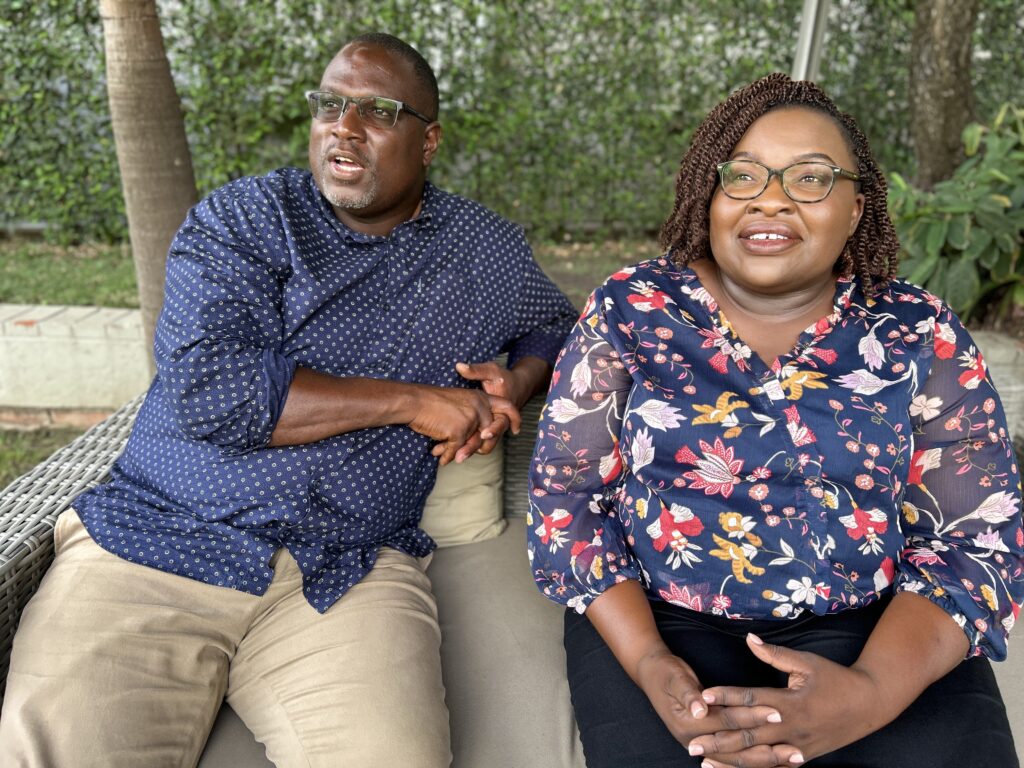
Q: In Rwanda?
Joyce: Yes, in Rwanda. Can you can imagine?
Q: So why are they not coming home?
Joyce: No one pays attention to us. It is the bureaucracy. When we come and say we want a little piece of land from the sabuku, you have to pay a lot, and you have to know the sabuku very well. It is a process.
Q: You guys are doing fantastic and your story is amazing. Are you planning to come back and settle, or this is going to be your life – living in the UK and farming in Zimbabwe?
Walter: These are the first steps to our coming back home to Zimbabwe. We are looking at a period of 5 years from now. I am thinking that at 55 years of age, I should be settled here at home. I don’t want to come here when I am spent, when I am a chikorobu. I don’t want to come here when I am going to be a burden to my kinsmen, to say they should look after me because I have been out for so long. I want to come here when I still got something to contribute. I want to come here when I still can do things by myself.
Joyce: I want to leave a legacy for my children and for the nation, and I want to make a difference because of the skills we have gained there. We have to give back to our own nation, because if you look at the way we are treated at times in the UK, people are educated, they improve themselves every day when they are in the diaspora, but no one takes care of them, no one even takes notice.
And all the efforts they are putting in, for example, in the National Health Service (NHS) in the UK, the moment all the Zimbabweans come back, I tell you there will be a crisis in the NHS, because from the care assistants, cleaners, the cooks, the doctors, the nurses, I don’t know the percentage now, but it is such a huge percentage.
So how about if we come to build our own country? With me, of course, my husband wants to say 5 years, but I am just waiting for my son to go into university. The moment he is independent enough to live on his own, and if I am assured that he is able to cook and to be responsible, there is no need to be staying there, honestly speaking.
I need to do things while I can because things will change. You will never know what it will be like in the next 10 years. I have been telling people that in the next 5 to 10 years, if you continue thinking the way you are thinking, saying “oh there is a lot of poverty in Zimbabwe, people are suffering”, you will be a stranger in your own country. So I don’t want that to happen to me, I want to be part of history, of building the nation.
Q: Is there anything burning in your heart that you think we have not talked about?
Joyce: The position I am holding leading women from around the world, not only in the UK, I feel that I represent every woman in the diaspora. I wish I could invite you one day to come and see how many they are, from all over the world, and I have worked so hard with them, for them to change their mindsets.
So I am not a selfish person, and given the opportunity, representing those women, I know I can even work with the government to do something with the diaspora, so that they can come back and do whatever may be available for them.
Walter: I think from my time in Zimbabwe since we came on 24 December 2022, I have seen many positive projects that the government is doing, and it’s quite a breath of fresh air to see the changes that we’ve seen on the roads, the dams that have been built, even the clinics that have been put up, and the other efforts that the government is doing.
We just wish more of that could be done and the story told a bit more, and the government dialogue more with the people in the diaspora, to say this is what we are doing at home.
I think much of what the government is doing is not known out there, and the story is not widely spoken about, or is not widely told as it should be. I think whoever is responsible in promoting Brand Zimbabwe is probably lagging behind what is happening in the country now. Because even in the rural areas some people are not aware of the progress that is being done. It is a shame that people believe so much of the hype that they see on the social media. It is not the reality on the ground.
Like Joyce said, we run the risk of being strangers in our own country. I have seen a lot of construction projects, I am an engineer, I want to see what other engineers are doing, the progress that is being made in real estate, it’s really something.
But the problem is the story is not being told. You know understanding comes from hearing. If we don’t hear it, we don’t understand it. So what you are doing with Brick by Brick magazine and the other publication will go a long way. But who is your target audience? Who is your readership? How can people access it.?
In the diaspora, it is more a digital world than here, so could such publications be done digitally, so that people can access it a bit more? You know, such stories need to be told. For me, it is just reaching out to the people out there to say this is what we are doing at home, how can you contribute? Because I am convinced that a lot of Zimbabweans out there want to contribute to the growth of this nation, to the success of this nation.
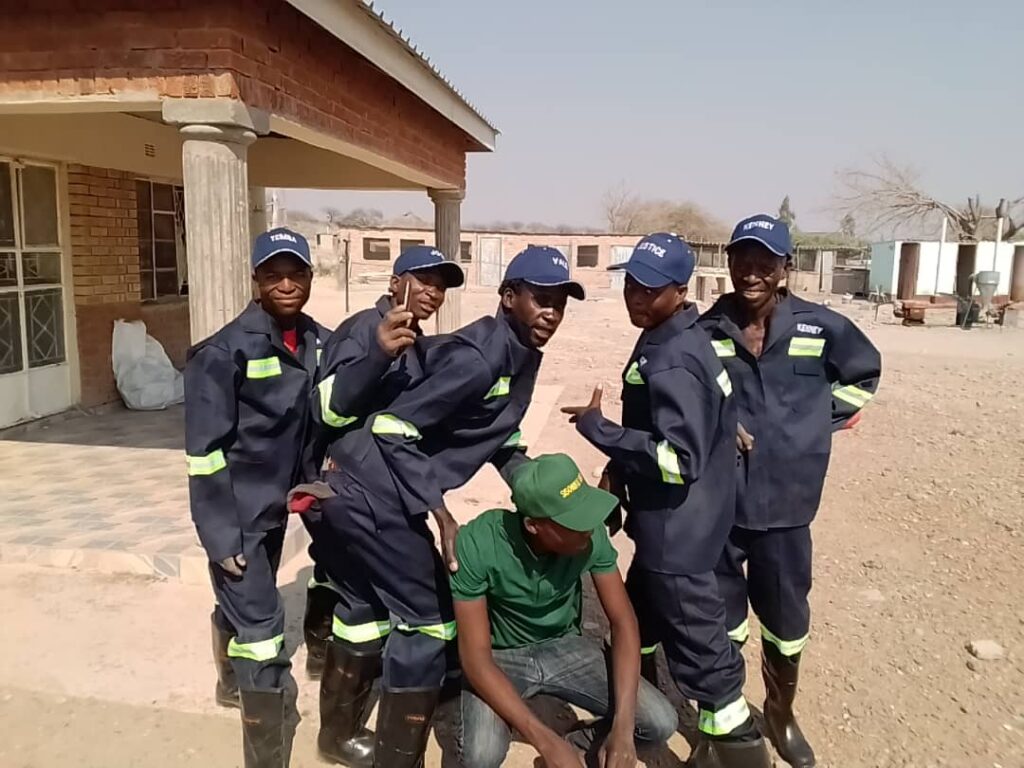
Joyce: And people are tired, some of them have been abroad for 30 years, believe you me, people want to come back home, they are really, really tired. They have had it, they have worked 6, 7 jobs, you know how it is in the UK. So physically they are tired. They want to come back. But where do they start when they come back?
So I think there should be a bridge where we just hold their hands for them to come back here. And given the chance, believe you me, even the other nationalities who are taking over, they would be shocked.
Q: What was your profession before you left?
Joyce: I was trained as a teacher in Zimbabwe but then I changed my profession to a social worker. We have our own company in the UK where we are recruiting healthcare workers – nurses and other workers.
We are also supporting people with special needs, the physically handicapped, the elderly, people with learning disabilities, and we are now going into supporting people who need living care, and children and families. So it is quite huge.
When we come back home finally, we also want to introduce some of the things we are doing in the UK here. Before I went to the UK, the way I used to view people with mental health here, I don’t view them in the same way anymore.
Walter: I want to make this point, which is so important to me. In the diaspora, we use Africa as a stick to beat our children. “If you are going to be a problem, I will take you back to the village,” was what our parents used to tell us when we were living in Kwadzana and Warren Park in Harare. “I will take you back to kumusha”, so our rural homes became a place where nobody wanted to be, because kumusha was associated with pain and punishment.
The same is being done in the diaspora. I am saying this because I am a parent. We are using Zimbabwe as a stick to beat our children. “If you misbehave, I will send you back to Zimbabwe.” The reason being that Zimbabwe has problems, so we are going to send our chldren to problems or into problems.
And people in the diaspora are using that as a stick to beat their children. It is a shame people think like that. And as long as people think like that, our children would not want to come back home to Zimbabwe. That would be a lost generation. I don’t want to be that parent. I want to be a parent that says kumusha is good, and my son says “when do you want me to go there”, because he knows that in kumusha he would find the best of the things he needs.
So this is one of the biggest drivers for us, to say Zimbabwe or kumusha is a legacy, it is something that they should look for, to come to. It is not only about the Victoria Falls, it’s about going to meet people in kumusha. It’s about people. It’s not about things.
So we want our children to grow up knowing that there are people out there who are just like them. It is for us, as parents, to tell a good story about Zimbabwe to our kids in the diaspora.

